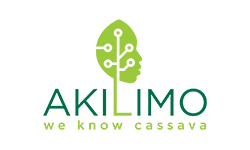ACAI team reflects on progress made in first quarter
 Members of the African Cassava Agronomy Initiative (ACAI) met in Nigeria to discuss and evaluate on the progress made in the first quarter of the year, 2019, across the different components of the project otherwise known as Work Streams.
Members of the African Cassava Agronomy Initiative (ACAI) met in Nigeria to discuss and evaluate on the progress made in the first quarter of the year, 2019, across the different components of the project otherwise known as Work Streams.
The meetings, which were convened by the Project Coordinator of ACAI, Dr. Pieter Pypers, 2-6 April; were aimed at creating internal synergy within the ACAI team while at the same time providing insights on the progress made by the Nigerian team.
Specifically, members of the ACAI team took a retrospective assessment of the best planting tool, monitoring and evaluation tools, and intercropping tools. There were also meetings with staff to assess the digital extension plan of the project and the scaling strategy being adopted.
Dr. Pypers also took time to discuss and appreciate the contributions of the project administration team, just as he held discussions with the Ph.D. trainees of the project.
At the end of the meetings, Dr. Pypers said he was satisfied with the progress made in Nigeria especially towards the finalization of the Decision Support Tools and the outreach plan.
ACAI staff who participated in the meetings included, Dr. Christine Kreye, Dr. Stefan Hauser, Prof Friday Ekeleme, Mr. Godwin Atser, Ms. Ezinne Ibe, and several other staff.
Commenced in 2015, ACAI is Africa’s flagship cassava agronomy project aimed at delivering cassava agronomy at scale. In 2018, ACAI and the Cassava Weed Management Project merged into one under the framework of ACAI, a move that enlarged the portfolio of ACAI.
ACAI Weed Scientist, Prof Friday Ekeleme commended the convener of the meeting, Dr. Pypers; and pledged the commitment of the team to redouble efforts to reach the milestones set in the project.
Beginning this year, ACAI intends to provide farmers with better agronomy advice and provide tools that allow farmers to access that information either directly (radio, SMS, USSD, IVR) or indirectly through services by EAs who are equipped with the decision support tools (DSTs). This will, in turn, boost the yield of cassava and put the nation on the path of growth, and raise the standard of living of cassava farmers, while providing more food available to feed African people.

